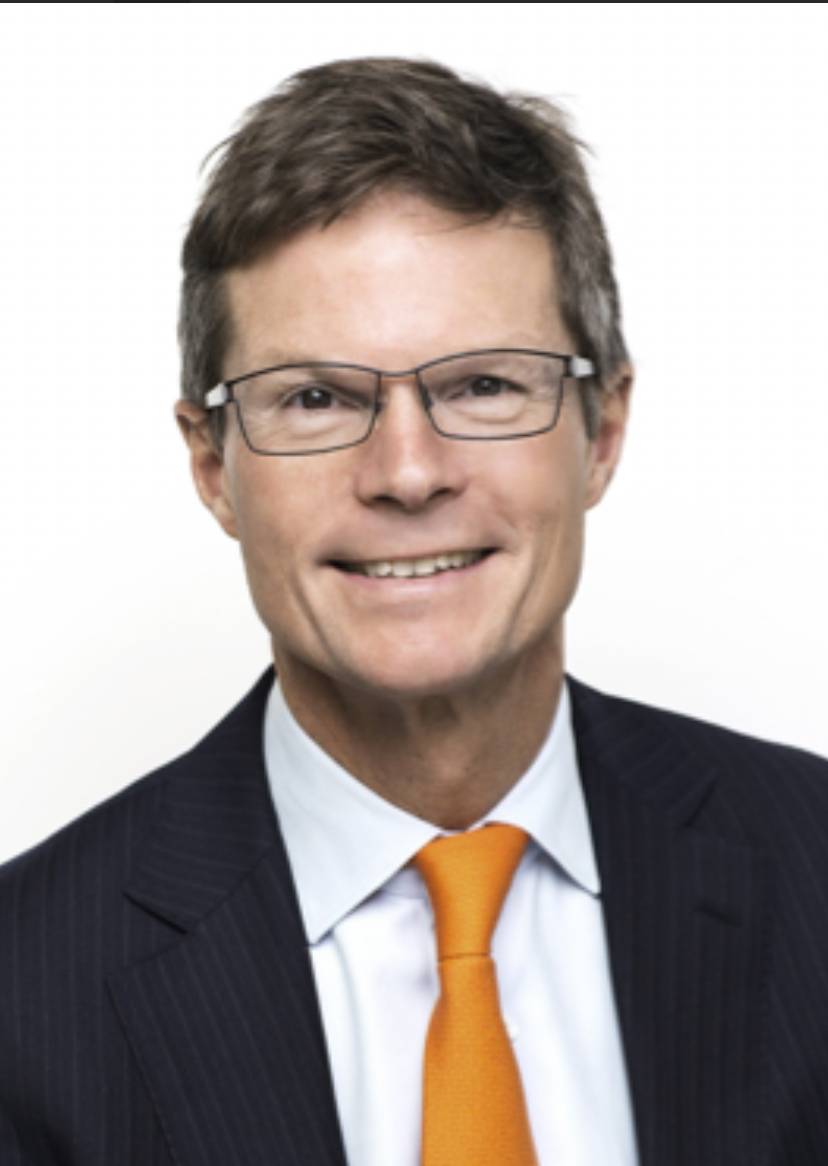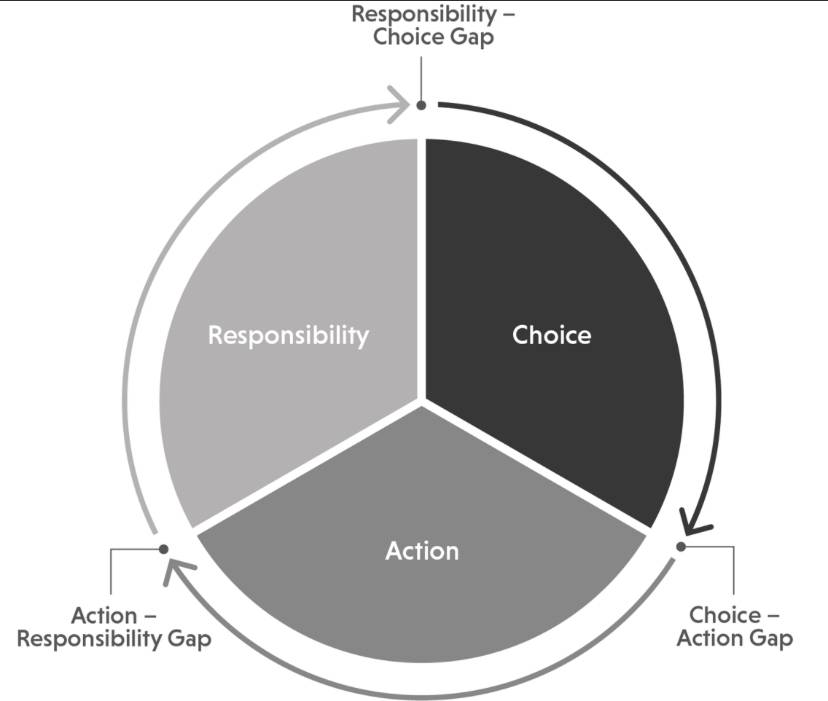Words By Stephen Bruyant-Langer, author of ‘The Existential Playbook – How to Survive, Live and Thrive’
 Reaching a crossroads or what seems like a dead end in life is not uncommon. Feeling stuck is frustrating and can lead to real feelings of despair, even among highly successfulindividuals. In my book, “The Existential Playbook,” I use my decades of experience working as an executive coach and headhunter for major corporations to offer a comprehensive guide to not just surviving, but truly living and thriving.
Reaching a crossroads or what seems like a dead end in life is not uncommon. Feeling stuck is frustrating and can lead to real feelings of despair, even among highly successfulindividuals. In my book, “The Existential Playbook,” I use my decades of experience working as an executive coach and headhunter for major corporations to offer a comprehensive guide to not just surviving, but truly living and thriving.
Here are some steps you can take to help transform your life.
Look at your life as a whole
When we feel stuck, our instinct is often to zero in on the problematic area and change something. However, life doesn’t exist in neat compartments. Your work affects your home life; your relationships influence your career. To truly flourish, we need to adopt a holistic view.
I encourage you to ask yourself: What do you want from life? What brings you meaning? These are big questions, but they’re crucial for living a fulfilling life.
When we are uncertain about our ultimate goals and meaning of our life, we end up firefighting short-term issues as they come up. This doesn’t solve our bigger issues or move us forward.
By gaining existential clarity, you can approach life with “relaxed readiness” – a state where you’re prepared to handle challenges flexibly, guided by your long-term goals and values. And knowing you are always heading towards where you want to be.
Develop existential clarity
Most people I work with are uncertain about the meaning of their life. There is no single answer ─ everyone will have a different meaning. Finding your meaning starts with understanding yourself. To help you do this, ask yourself the following questions:
What were your most fulfilling years? What made them stand out? What do you want to stand for? What’s holding you back?
While it’s important not to dwell on the past, it can provide valuable insights. Identify what made past experiences meaningful and consider how to incorporate similar elements into your future.
To further develop clarity, I recommend two “existential hacks”:
– Expose yourself to awe: Seek out experiences that inspire wonder and perspective.
– Practice courage: Step out of your comfort zone regularly.
It is amazing how much difference these two easy hacks will make to your life and your ability to find meaning and the path that is right for you.
 Define success on your own terms
Define success on your own terms
Society often measures success by external markers: salary, prestige, possessions. But do these align with your personal values? Do those things really matter to you?
Consider:
– What are your true goals?
– What do you long for?
– How will you define success?
Imagine yourself at the end of your life. What would make you proud? What would have made life worth living?
Creating a meaningful, long-term, sustainable change in your life, requires you to know where you want to go. What does a meaningful and successful life mean to you?
Use these insights to define success on your own terms. No compromises. No restrictions. No excuses.
Make a Choice, Take Action, Accept Responsibility (CAR)
Existential philosophy and psychology tell us that we need three things to become unstuck: choice, action and responsibility.
Choice
Once you have developed existential clarity, have the courage to choose the life you want. Again, no compromises. Don’t think in terms of “either/or”; instead, choose “both/and”. For instance, you might decide that both a fulfilling career and strong family relationships are crucial to your well-being.
Action
But choice without action leads to procrastination. We need to take action to bring our goals into reality. Be bold and make potentially dramatic changes to live the life you want. Thinking alone won’t make things happen. In our example, you might schedule regular family dinners and set boundaries at work to ensure you can attend them.
Responsibility
Finally, we need to accept responsibility for our actions. Every action (or, often, inaction) has consequences. Action without responsibility leads to blame-shifting and poor future decision-making. After all, it’s all someone else’s fault, right? So, what’s the point of making choices if we aren’t responsible for the outcome? This is an unhealthy perspectivethat will leave you feeling as though life happens to you, rather than recognising that you have the power to make your life.
If we are free to choose, we must accept the responsibilities for our choices. We can then learn from our choices, which, in turn, allows us to make the next choice with full awareness and a feeling of control. Responsibility thereby enhances our ability to make good future choices.
 In our family dinner example, taking responsibility might mean being fully present during these interactions, even if it sometimes means saying no to work commitments. By half-heartedly attending the dinner and not really engaging with your family because you allow yourself to the pulled back to work (for example), means that neither action will feel satisfactory, both will feel ‘wrong’ or stressful, and overall,you won’t have achieved the goal you set yourself. So, make your choices and take responsibility for them by committing to them.
In our family dinner example, taking responsibility might mean being fully present during these interactions, even if it sometimes means saying no to work commitments. By half-heartedly attending the dinner and not really engaging with your family because you allow yourself to the pulled back to work (for example), means that neither action will feel satisfactory, both will feel ‘wrong’ or stressful, and overall,you won’t have achieved the goal you set yourself. So, make your choices and take responsibility for them by committing to them.
Many people end up stuck when they make a choice and complete an action that ends up going awry. This can happen, despite your genuine best intentions and actions. You may then fear making future choices as you now have a fear of getting it wrong. Responsibility without choice leads to rumination and anxiety. But, by stepping back and looking at your long-term goals, you may discover that the ‘wrong’ choice was simply a speed bump on the journey of your life.
Remember, mistakes don’t define your life, but your reaction to them can. Embrace change as an opportunity for growth and learning.
 Surviving, living, thriving
Surviving, living, thriving
To live a full life we need to survive, by which I mean life needs to be sustainable and meet our survival needs. These include food, water and shelter, but also a sense of self-esteem and relationships. It is important to think about the long-termneeds of your life, not just the short–term ones.
Next, we need to live. This means making choices, taking action and accepting responsibility. In this way, we move our lives forward on our own terms and feel empowered to curate our present and future. This is the on-going process of living a fulfilling and meaningful life.
Finally, we want to thrive. Thriving is about the feeling of lightness, energy, optimism, and joy we get from making meaningful changes in our life with the long-term picture firmly in mind.
To truly thrive, I encourage you to invest in strong relationships and commit to lifelong learning. Stay curious and open to new experiences – these are key to cognitive health and personal development.
Your Existential Playbook
By applying these principles, you can discover existential clarity and achieve a state of relaxed readiness, where you are capable of handling anything that comes your way with grace and relative ease. You will cut the strings of the past, curate your present life, and design a future where you can thrive. You will transform life into something full and meaningful.
Remember, life is constantly evolving, and so are you. Embrace this journey of self-discovery and growth. Start today: reflect on your values, set meaningful goals, and take one small action towards the life you envision. Your existential playbook is waiting to be written – it’s time to pick up the pen.
ABOUT THE AUTHOR
Stephen Bruyant-Langer has over 30 years’ experience as an executive coach and leadership expert, guiding top executives and leaders worldwide to reach their full potential. He is founder of The Personal Business Plan, the new standard in executive coaching, and through his Executive Coaching Programme, he has transformed the lives of hundreds of high-level executives using his unique 10-step system for personal and professional development.
Stephen blends corporate, academic, entrepreneurial and consulting skills, having held senior positions with industry leaders like The Coca-Cola Company, L’Oréal and Korn Ferry.
He has authored two bestselling books (‘Your Next Career – A head-hunter’s guide to lifelong success’ and ‘The Personal Business Plan — A blueprint for running your life’) and over 400 articles on leadership. In parallel he has served as an Associate Professor at Copenhagen Business School as well as an Associate at the Møller Institute, Churchill College, University of Cambridge. His third book, ‘The Existential Playbook – How to Survive, Live and Thrive’ was published September 2024.










 In our family dinner example,
In our family dinner example,  Surviving, living, thriving
Surviving, living, thriving









